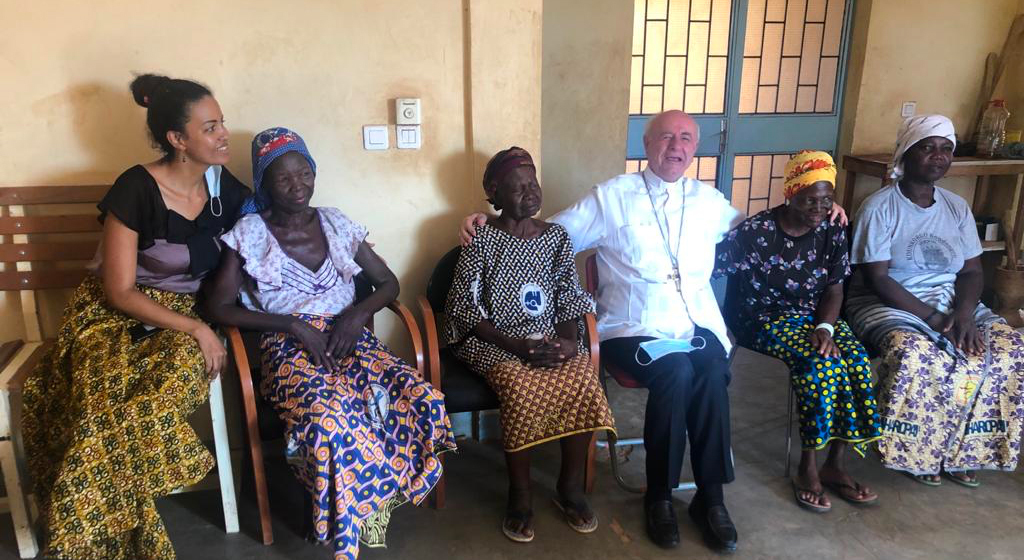The friendship of the Community of Sant'Egidio with Burkina Faso and all of its manifold commitment - such as the ten-year effort to register minors, the initiatives for dialogue and peace - has been at the centre of Monsignor Vincenzo Paglia's four-day visit to Ouagadougou. During the meeting with Monsignor Paglia and a delegation of Sant'Egidio the President of Burkina, Roch Marc Christian Kaboré, stressed that Sant'Egidio is "an important presence" in the country, which for some time now has been subjected to heavy armed attacks by jihadist groups from the Sahel - causing the dramatic displacement of thousands of people. The President also underlined the need for dialogue that can bring together all the religious and civil society groups and "make us understand that diversity is richness and not occasion for conflict".
The visit was an opportunity to strengthen the friendship with the Archbishop of Ouagadougou, Cardinal Philippe Ouedraogo - who has participated in many meetings with Sant'Egidio to promote dialogue and the role of the Church in Africa. The Archbishop has visited the Community in places of significance for its commitment in the country.
In the family home where some elderly women are living - saved from the prejudices that often surround and isolate elderly people in Africa - the meeting with Monsignor Paglia was celebrated, emphasising the importance of not abandoning anyone. Another significant encounter was with the Bravo! (Birth Registration for All Versus Oblivion) team. This civil registration programme has succeeded in enrolling more than 3,800,000 people in civil registers since 2009. Mostly minors who, because of their 'invisibility', were at risk of abuse of various kinds. In addition, they were considered not existing by the State. Of particular interest was a visit to a maternity centre in Ouagadougou where, thanks to an agreement with the State, newborns are registered free of charge at their birth so that their identity can be confirmed since their first day of life.
Today's videos














